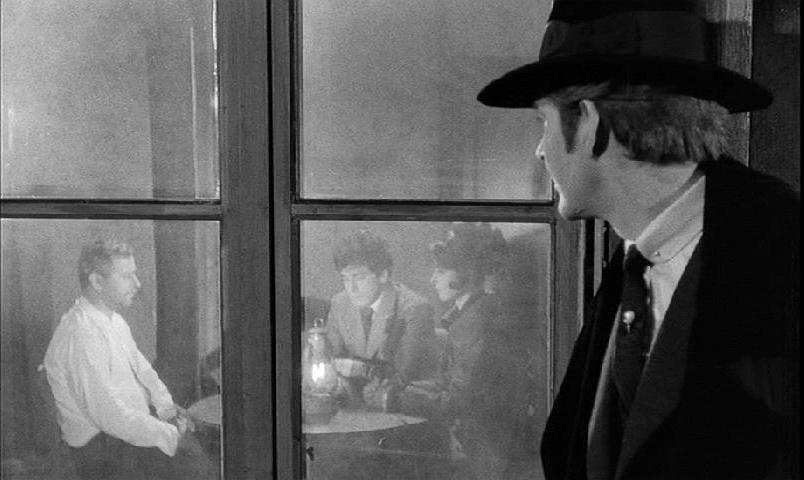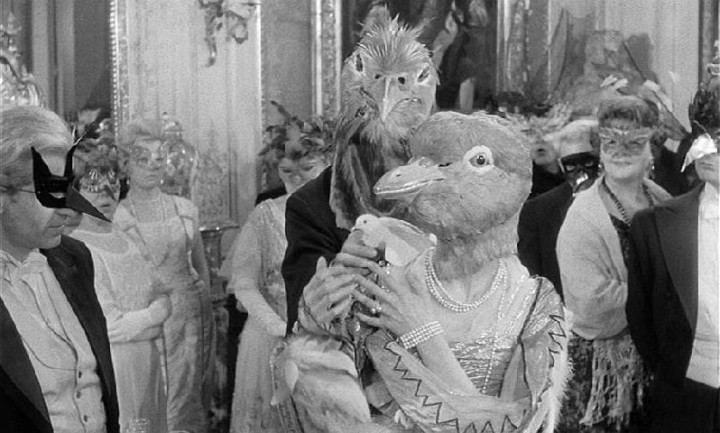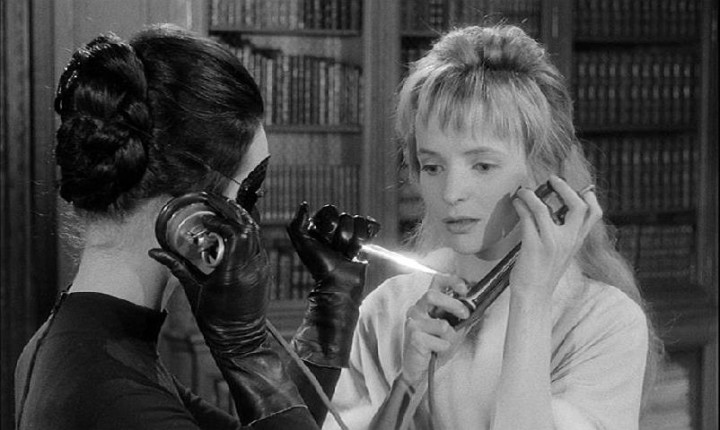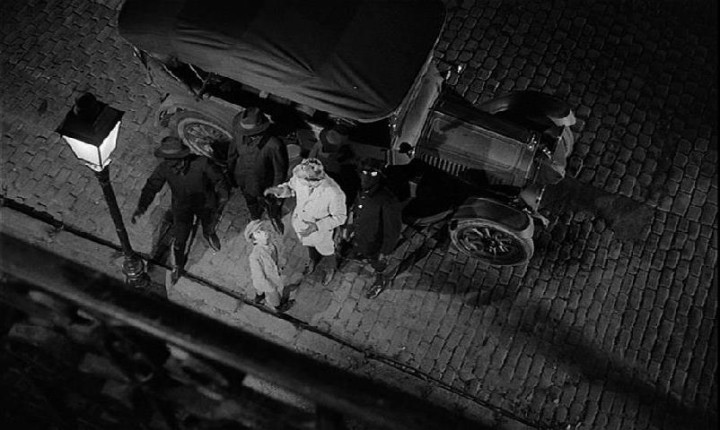Louis Feuillade was one of the pioneers of not just French cinema, but of cinema in general. He made hundreds of films. (It looks like even more on the IMDb because they insist — creating some confusion — on listing each serial chapter as a separate film.) Today he’s best remembered for Fantomas (1913), Les Vampires (1914-15), and Judex (1916). Considering that these films are in the hundred-year-old range, they are more read about than actually seen these days. The films are very much of their time — with very little camera movement and entire scenes often played out in one take — but they have a quality that makes them strangely compelling. Part of that (at least in Les Vampires and Judex) stems from them being shot in largely deserted wartime (though the war is never addressed) Paris, which gives them an eerie feeling. But a lot of it is the same thing that made them popular in their day — they’re utterly preposterous and very pulpy crime thrillers with super criminals, masked characters, narrow escapes, and outrageous plotting. The first two focused on the criminals, which caused criticism that Feuillade was glorifying crime. So Judex was a kind of response to this — and gave the world its first caped vigilante in its hero, Judex (the name is Latin for “justice”).
Jumping ahead nearly 50 years we find another filmmaker, Georges Franju, creating an homage to Feuillade by remaking Judex. (I have read that he really wanted to make Fantomas — and a shot of a character reading a Fantomas book may bear this out.) It is undeniably an easier undertaking for the modern viewer — not in the least because it’s 98 minutes and not 300. Plus, it simply moves better and embraces a more modern filmmaking style, but Franju has very much captured the visual quality of the Feuillade film — and every bit of its outrageous serial plotting. This is surprising because nothing else in Franju’s filmography suggests that the man was a firkin of simians. It’s kind of shocking to see him making something that’s pretty ridiculous, though he does get some personal references in by evoking the doves and dogs from his Eyes Without a Face (1960).
The film is really just a revenge story that becomes complex because of all manner of double-crosses, secret identities, and, let’s face it, some pretty base incompetence on the part of our hero. It may be that all his flashy theatricality and elaborate schemes are not always in his own best interest, but it does seem incredible that he can screw up so often and so completely. But, hey, something has to keep things moving — and they certainly do move. And it all looks great. The masked ball with its bird masks and almost somnambulistic waltzing is deliriously surreal — even if part of it seems to exist just to let Channing Pollock, the American stage magician Franju cast as Judex, do his famous dove tricks for the camera. Mostly, however, the film is a good-natured series of wild and woolly melodramatic encounters — all of which are quite in keeping with Feuillade. What really sells it is that Franju never approaches the material as if he thinks it’s quaint and old-fashioned. That some of the actors just don’t look like they’re from 1916 and most of the women’s hairstyles (except for Edith Scob’s) are too modern is a minor quibble. And if gets anyone to take a look at the real McFeuillade, so much the better.
The Hendersonville Film Society will show Judex Sunday, Aug. 10, at 2 p.m. in the Smoky Mountain Theater at Lake Pointe Landing Retirement Community (behind Epic Cinemas), 333 Thompson St., Hendersonville.







Franju finally got to remake FANTOMAS in 1974. It was called NUITS ROUGE or SHADOWMAN. It co-stars Gayle Hunnicutt and Josephine Chaplin (both dubbed into French) and was his last feature film. It was released as a companion piece on the Region 2 DVD of JUDEX.
But is it any good?
It suffers from a very tight budget and being in color (the producers insisted) but it definitely has its moments. You would like it better than EYES WITHOUT A FACE but not as much as JUDEX.
I like a lot of things better than Eyes Without a Face.